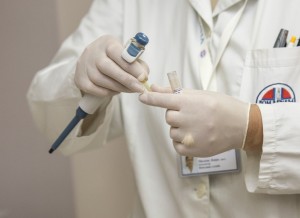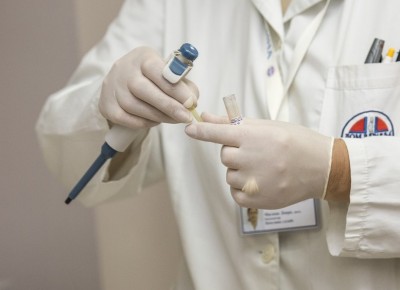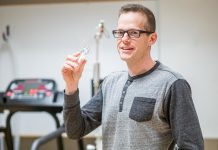According to a study published in JAMA Internal Medicine, 18.7 percent of type 2 diabetics were at risk for adverse effects due to the intensity of the treatment option given by their healthcare provider.
A new study of adults with type 2 diabetes suggests more than 25 percent received intensive glucose-lowering therapy, including 18.7 percent who were at risk for treatment-related adverse effects because of advanced age and co-existing illnesses, according to a new study published online by JAMA Internal Medicine.

Clinical guidelines recommend a target hemoglobin A1c level less than 7.0 percent for most nonpregnant adults with type 2 diabetes.
Patients with advanced age, a limited life expectancy and complex health problems likely will not benefit from tight glycemic control and could actually be harmed.
Rozalina G. McCoy, M.D., of Mayo Clinic, Rochester, Minn., and coauthors used an administrative claims data in their study of 31,542 adults to examine the association and frequency of intensive glucose-lowering treatment and severe hypoglycemia (abnormally low blood glucose) in adults with type 2 diabetes who were not using insulin.
In total, 8,048 (25.5 percent) patients were treated intensively, including 7,317 patients (26.5 percent) with low clinical complexity and 731 patients (18.7 percent) with high clinical complexity.
Continue Reading Below ↓↓↓
The intensive treatment of patients with high clinical complexity because of age (75 or older), other medical conditions, or both, increased the incidence of severe hypoglycemia from 1.7 percent to 3 percent, according to the results.
“Individualized assessment of clinical complexity, in addition to careful consideration of likely risks and benefits of intensive glucose-lowering therapy, is therefore an important part of patient-centered diabetes management,” the authors conclude.
Full study: Intensive treatment, severe hypoglycemia in adults with type 2 diabetes
Source: The JAMA Network Journals
Journal: JAMA Internal Medicine












It would seem this is a very short sighted study. To be a better study and truly valid the groups being studied should have been broken up into those who do not have cognitive problems or other dementias. Those who are physically able to participate in any activity compared with others in their age group should be trialed. This is a very incomplete study and not applicable to those who are on intensive therapy. There are many cases of structured therapy using Insulin in an Insulin pump that will control the spikes and keep a fairly level blood glucose. Avoidance of highs and lows can be controlled and the patient can live a quality life. Even the patient who needs Surgical intervention or other procedures heal as well as a non-Diabetic when well controlled.
Real care and therapy is called for when the elderly patient can show that they are as able as
anyone else to use the pump properly and care for their disease and control it.
Don’t bury the over 70 Diabetic before their time. They can be very productive citizens and give
much back to this society. Should we advise all the over 70 Diabetics to never buy green bananas?